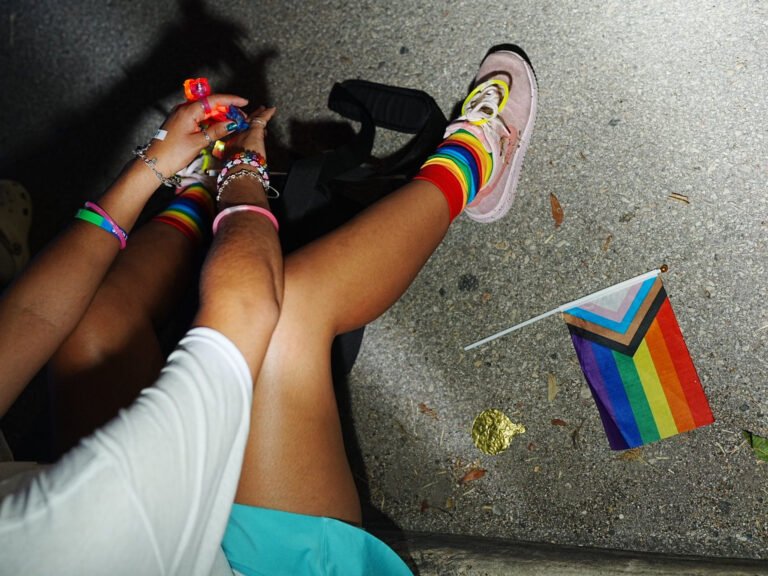The variety of LGBTQ+ San Antonio citizens that have actually experienced being homeless has actually enhanced dramatically considering that 2019, according to a neighborhood wellness study from the Fortifying Color styles of Satisfaction union, Satisfaction Facility San Antonio and Trinity College.
The union, composed of LGBTQ+ protestors, scientists and neighborhood participants, launched its very first neighborhood wellness study in 2020. The brand-new record is based upon 685 on the internet studies accumulated from LGBTQ+ people in the San Antonio city location from September 2024 to January 2025.
Though not an ideal contrast to the 2020 record, which recorded 1,819 feedbacks, the brand-new information recommends that the South Texas LGBTQ+ neighborhood remains to fight with accessibility to healthcare, real estate and various other difficulties, probably at better prices than 5 years ago.
” This record explains that when LGBTQ+ individuals are denied by their families
and in need of support by their neighborhoods, the effects are ravaging and
measurable,” Lex Loro, acting exec supervisor of Satisfaction Facility San Antonio, stated in a press release.
Being homeless and real estate instability
Twenty-eight percent of participants reported experiencing being homeless presently or at some point in the past, a rise from 18% in the 2020 record. 6 percent reported being homeless in the previous year. And Black participants reported one of the most worries regarding real estate security.
Over the very same duration, Bexar Area’s homeless populace enhanced from 2,872 homeless people in 2019 to 3,398 in 2024, according to the yearly point-in-time matters.
Virtually fifty percent of participants stated they fretted about shedding their real estate, and those that shared one of the most stress and anxiety regarding real estate were two times as most likely to have
experienced self-destructive ideas.
Of those that reported experiencing being homeless, 18% reported being rejected of their home for their sexual preference or sex identification. One in 7 stated they would certainly been with conversion treatment, a dangerous method that looks for to change an individual’s sex-related identification or sex expression.
Most of the participants that reported experiencing being homeless, household alienation and conversion treatment stated they experienced it as teenagers.
” These young people are shielded from coming to be unhoused by having financial chances, instructional sources, and helpful loved ones like grandparents, aunties, and brother or sisters that share real estate with them when moms and dads are not happy to,” Amy Rock, a Trinity College sociologist that researches LGBTQ+ young people being homeless in South Texas, stated in a press release.
The joblessness price for LGBTQ+ participants was 8.5%. The most up to date Bexar Area joblessness price was 4.4% in August.
Access to wellness care
One in 3 participants reported problem accessing healthcare. Amongst those that had medical insurance, fifty percent reported that healthcare expenses were rather of a trouble, and 23% reported that expenses were a huge trouble when they desire or require healthcare.
Approximately a quarter of participants reported wishing to gain access to preventative HIV medicine however might not manage the expense.
Transgender participants reported dramatically poorer physical and psychological wellness contrasted to various other teams in the study.
Participants typically experienced favorable experiences with their healthcare companies, however numerous still reported unfavorable communications, with over a quarter reporting persecution by a service provider as a result of their LGBTQ+ identification.
Fourteen percent of participants ranked their psychological wellness as inadequate. And 38% reported being identified with a depressive or stress and anxiety condition. Black, Hispanic and multiracial participants reported looking for healthcare dramatically much less than white participants.
Lots of participants reported unfavorable influences from the variety of anti-LGBTQ costs gone by the State Legislature recently. Sixty-three percent stated that the legislations made them more probable to elect and 47% stated they intended on relocating to an additional state therefore.



